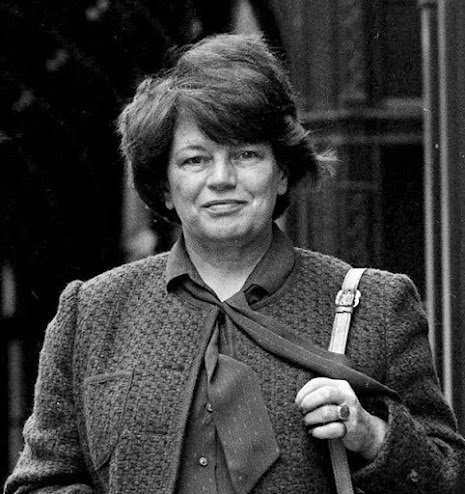 |
| Mavis Gallant |
Author denies plagiarism in New Yorker story modelled on Mavis Gallant tale
Tuesday 16 January 2018
This article is more than 3 years old
Sadia Shepard has been accused of making excessive use of the late author’s work in Foreign-Returned, but insists her reworking honours Gallant’s legacyThe author Sadia Shepard has defended herself against a claim from author and professor Francine Prose that her short story Foreign-Returned draws too heavily from Mavis Gallant’s The Ice Wagon Going Down the Street.
Gallant’s story, published in 1963 in the New Yorker, tells of a couple in Canada, Peter and Sheilah, reminiscing about the time they spent living in Geneva. There, Peter worked as a file clerk with a shy girl called Agnes, who knows a glamorous family, the Burleighs. Peter and Sheilah invite Agnes for an awkward dinner to find out more about the relationship; later, they all attend a party at the Burleighs’, where Agnes gets drunk and Peter takes her home. Shepard, the author of an acclaimed memoir, The Girl from Foreign, published her first short story with the New Yorker in January: Foreign-Returned tells of a Pakistani couple living in Connecticut, Hassan and Sara. Hassan works with Hina, and he and his partner are shocked to discover that Hina also knows the glamorous Ahmeds. They invite her to a dinner that is as awkward as that in Gallant’s story. At a later party, Hassan is asked to take Hina home.
In an interview published in the New Yorker last week, Shepard acknowledged a “great debt” to Gallant and to Ice Wagon, adding: “I remember reading Gallant’s story – which is largely about Canadians working in Geneva – and thinking, This feels so Pakistani. Gallant’s ability to create a fictional world that conveys a sense of truth that feels universal, or that might be applicable to a completely different context, is incredibly exciting to me.”
However, some authors, including Francine Prose, were critical of the similarities and the perceived lack of credit given to Gallant and her story, with a few pledging to write to the New Yorker to complain. In her own letter to the New Yorker, Prose highlighted how “scene by scene, plot turn by plot turn, gesture by gesture, the Shepard story follows the Gallant”.
“Some phrases and sentences are mirrored with only a few words changed,” wrote Prose. “The correspondences far exceed the bounds of ‘debt’, and even of ‘homage’, or of a ‘translation’ into a different ethnicity and historical period. Is it really acceptable to change the names and the identities of fictional characters and then claim the story as one’s own original work? Why, then, do we bother having copyright laws?”
Shepard, however, took issue with the characterisation, saying: “Prose’s assertions reflect both a profound misrepresentation of my work and a refusal to acknowledge the central role that cultural identity plays in my story.
“In acknowledging my great debt to Gallant in my interview with my editor, my aim was to make my intentions clear: to use Gallant’s classic story of self-exile in postwar Europe as a point of departure for an exploration of the immigrant experience of Pakistani Muslims in today’s America,” she said. “I believe that creating new work inspired by Gallant honours her legacy and might even bring her new readers, something that Prose and I no doubt agree she deserves.”
Shepard was also defended in the New Yorker by the author Jess Row, who said that accusing Shepard of plagiarising Gallant “denies both Shepard and Gallant the respect they deserve”. Her critics, wrote Row, are “refusing to admit that to transpose a work’s cultural setting, or racial perspective, while preserving its plot is a long-standing, valid, and increasingly vital extension of Ezra Pound’s command to ‘make it new’ … The real scandal here is the proprietary rage of Shepard’s critics, who insist that she has no right to this material. As if they were the ones in charge.”
Writing on Literary Hub, author Lincoln Michel said he felt Shepard’s use of Gallant was fair, but that the acknowledgment of Gallant’s story should have been more prominent. “Is Mavis Gallant, a celebrated author in Canada who is not widely read in the US, famous enough to remix without attribution? If I were the author or the editor, I would probably have put ‘after Mavis Gallant’ below the title to acknowledge the inspiration. I would do that with Shakespeare, too. But I hardly think its omission is a high crime.”




No comments:
Post a Comment